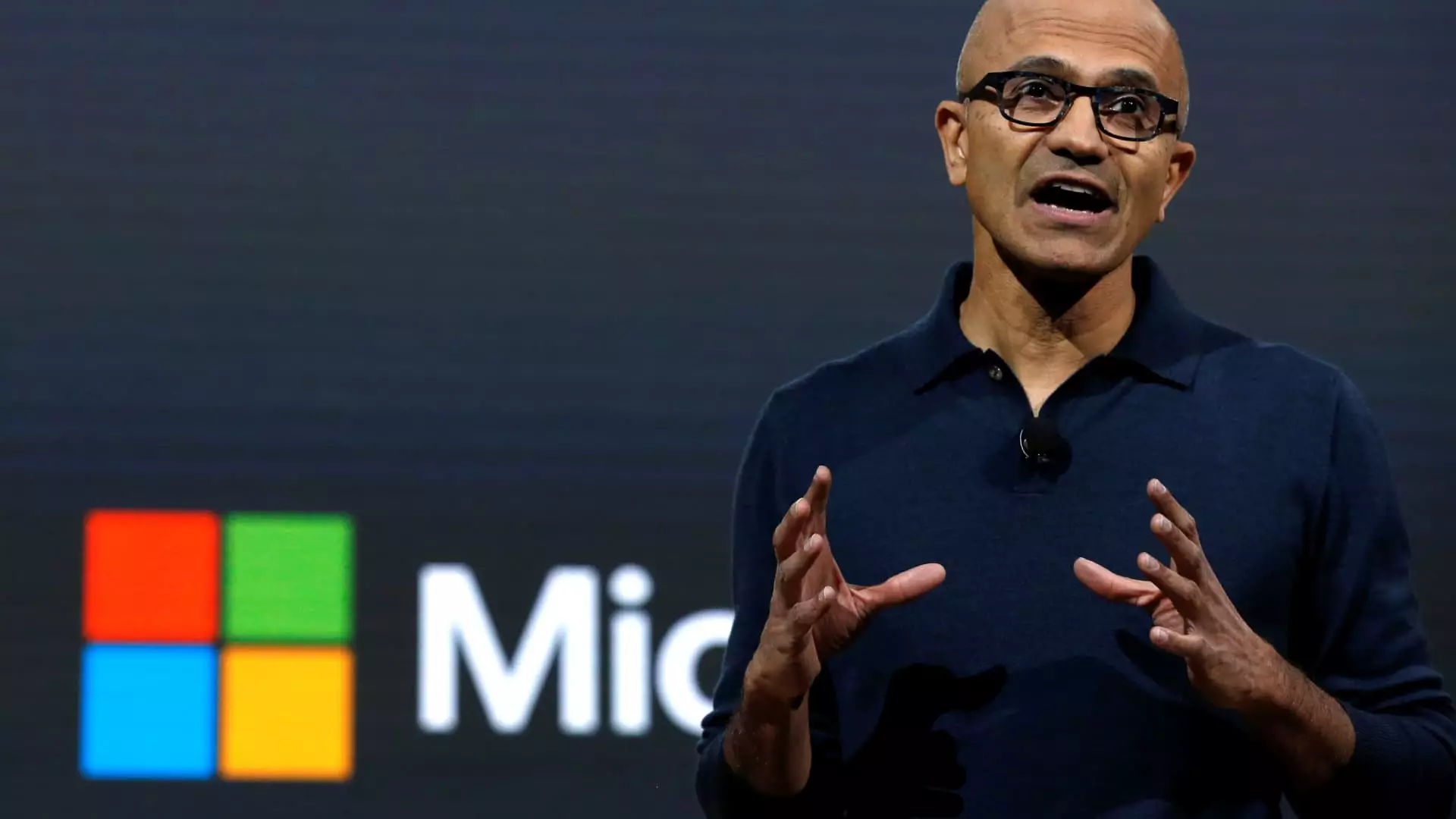As Microsoft’s Build developer conference kicks off, the tech giant has the opportunity to showcase its latest advancements in artificial intelligence. Unlike its competitors, Microsoft has a distinct advantage in the AI race due to its ownership of Windows, which gives the company access to a vast PC userbase. CEO Satya Nadella has boldly stated that by 2024, AI will become a “first-class part of every PC.” With offerings like the Copilot chatbot assistant in Bing and Office software, Microsoft is already making strides in integrating AI into its ecosystem. Now, PC users can look forward to learning more about how AI will be seamlessly embedded in Windows and the possibilities it unlocks on new AI-powered PCs.
For Microsoft, the challenge lies in maintaining a prominent position in the AI space while also boosting PC sales, which have stagnated in recent years. Despite a recent uptick in PC shipments after a multi-year slump, the company needs to find innovative ways to entice customers to upgrade their aging computers. With the potential of AI tools to drive increased usage of Windows and push customers towards high-end PCs, Microsoft is poised to capitalize on this opportunity. By enhancing the user experience with AI-driven functionalities, Microsoft can create a compelling reason for both enterprise and consumer customers to invest in new hardware.
One key aspect of AI PCs is the integration of neural processing units (NPUs) to handle artificial intelligence tasks. Beyond the capabilities of traditional central processing units (CPUs), NPUs are specifically designed for AI workloads. Companies like Apple have successfully leveraged NPUs to enhance features like photo and video processing and speech recognition. Microsoft’s collaboration with chipmakers like AMD, Intel, and Qualcomm ensures that their AI-powered computers are equipped with hardware capable of handling complex AI tasks. With upcoming chips like Intel’s Lunar Lake and Qualcomm’s Snapdragon X Elite, users can look forward to real-time language translation, automation inferencing, and enhanced gaming experiences on their AI PCs.
While Intel currently dominates the PC chip market, ARM-based chips from companies like Qualcomm are gaining traction for their energy efficiency and design advantages. Microsoft’s sessions at Build are expected to shed light on the future of Windows on Arm architecture and how it differs from Intel and AMD-based systems. Qualcomm’s Snapdragon chips, powered by Arm-based architecture, offer benefits like longer battery life and thinner designs, but their limitations with running traditional Windows applications have historically hindered adoption. Microsoft’s efforts to optimize Windows for ARM hardware signal a shift towards a more diversified ecosystem that caters to a variety of hardware configurations.
At Build, Microsoft will delve into topics like “AI Everywhere,” emphasizing the integration of generative AI models on cloud-based devices. Sessions like “Azure AI Studio” will guide developers on creating their own AI chatbots, akin to Google’s Gemini and OpenAI’s ChatGPT. The potential for companies to develop customized chatbots for various use cases, such as helping employees choose health benefits, showcases the versatility of AI in enhancing productivity and user experiences. By empowering developers to leverage AI tools efficiently, Microsoft is poised to drive greater innovation in the AI space and shape the future of computing.
Microsoft’s Build developer conference serves as a platform for the company to showcase its leadership in AI innovation and its commitment to integrating AI seamlessly into Windows PCs. With a focus on enhancing user experiences, boosting PC sales, and embracing new hardware advancements, Microsoft is paving the way for a future where AI is central to the computing experience. By leveraging AI’s capabilities, Microsoft is poised to revolutionize the way users interact with their devices and unlock new possibilities in the realm of artificial intelligence.


Leave a Reply